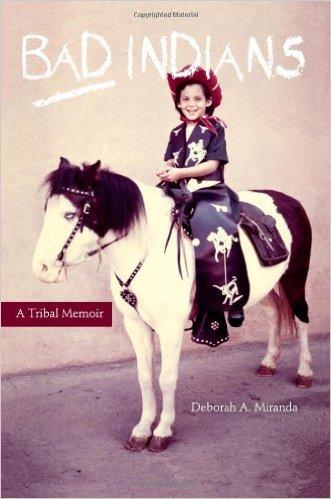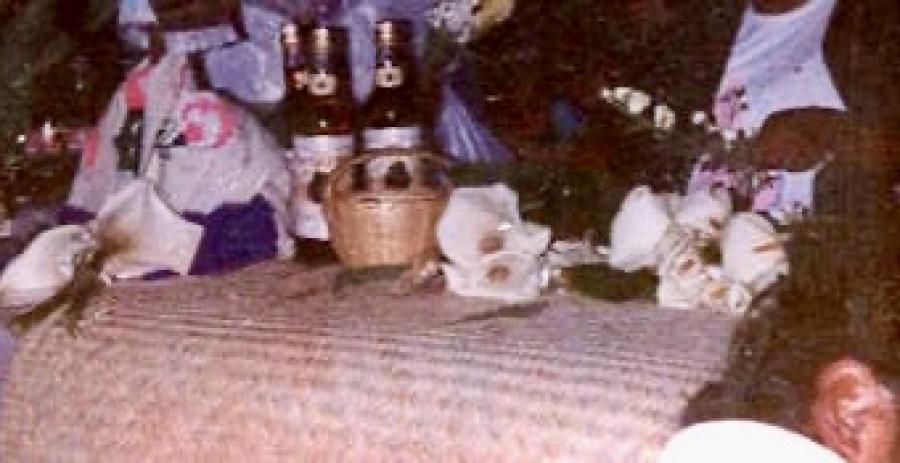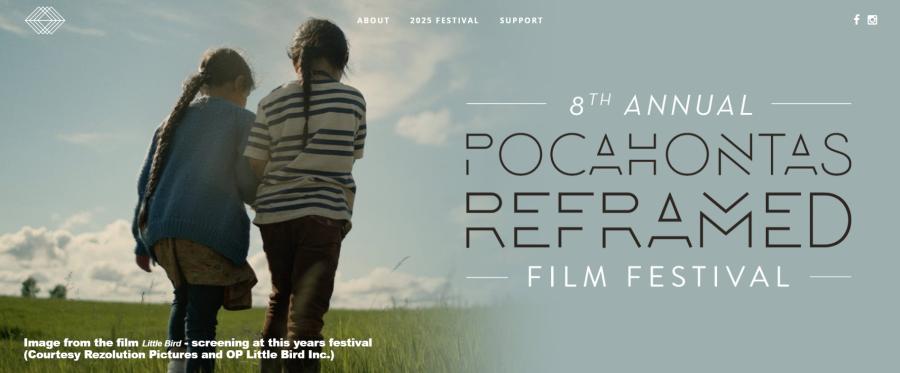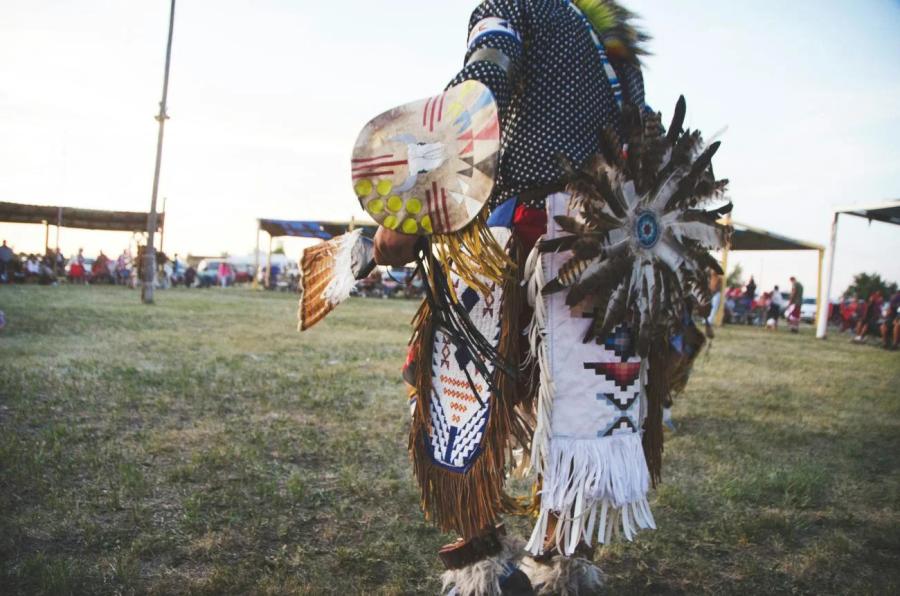
On May 10, 2016 the Library of Congress featured Native American writers on a panel, "Spotlight on Native Writers." Eric Gansworth, Linda LeGarde Grover, and Stephen Graham Jones read excerpts from their work and Deborah Miranda moderated the discussion and Q&A.
Shortly after "Spotlight" the writers and audience walked a few blocks to the Folger Shakespeare Theater for a reading and discussion by Louise Erdrich, the 2015 Library of Congress Prize in American Fiction winner who read from her new novel La Rose and participated in a discussion Q&A moderated by Professor Howard Norman of the University of Maryland.
Cultural Survival Contributing Arts Editor Phoebe Farris interviewed some of the writers before and after the two literary events co-sponsored by the Library of Congress and the PEN/Faulkner Foundation.
Deborah A. Miranda (Ohlone-Costanoan Esselen Nation of California) was awarded the PEN/Oakland Josephine Miles Literary Award for the book Bad Indians: A Tribal Memoir in 2016.She has three poetry collections, Indian Cartography, The Zen of La Llorona, and Raised by Humans. Miranda is a co-editor of Sovereign Erotics: An Anthology of Two-Spirit Literature. She also has a collections of essays, The Hidden Stories of Isabel Meadows and other California Lacunae. Miranda studied creative writing with Leslie Marmon Silko and Linda Hogan among others. Currently she is the John Lucian Smith Jr. Professor of English at Washington and Lee University.
Phoebe Farris: Please tell our readers briefly about the John Lucian Smith Jr. chair. Is it endowed? How did you get it?
Deborah Miranda: It is a new chair and I am the first recipient. John Lucian Smith Jr. endowed chair was started by the fraternity brothers of a Washington and Lee English and Law alum, John Lucian Smith Jr. after his death and in his honor. His wife, Judge Rebecca Smith, was also part of establishing this award, which will alternate three each between an English professor and a Law School professor. It is three year appointment in the English department and I am the first woman of color to receive an endowed chair at Washington and Lee University.
PF: Your Washington and Lee profile listed your cross-listed classes and research interests. I am curious about your interest in Appalachian literature and the Shepherd Poverty Program.
DM: Washington and Lee's Shepherd Poverty and Human Capability Program is the first in the country and it has now expanded to other universities. The Shepherd Poverty Program is affiliated with the Campus Kitchen Program, among many others. Service learning is part of the program, in which Washington and Lee students may minor, along with a range of course work. The Appalachian Literature program deals with novels about poverty written from a more humanistic perspective. My classes include works by Appalachian and Native American authors. Two books that I use are Salvage the Bones which is about Katrina and Winter in the Bone.
PF: For readers not familiar with your book Bad Indians: A Tribal Memoir (2013) what time period does it cover?
DM: It is both a tribal memoir and about me. It begins in 1769, the year of the first California Indian mission and ends in 2013.It is a genealogy that covers four big chunks of time. A lot of the historical information comes from tribal member Isabel Meadows who died in 1936. She recorded her history and it is now being transcribed. The memoir also includes mission and BIA records as well as my family's oral history.
PF: You have been lucky to study with distinguished Native writers. What was it like being mentored by them?
DM: Those were all blessings. During my participation in the Sandra Cisneros Macondo Writing Workshop, Leslie Marmon Silko read my memoir manuscript and gave me important feedback on my writing style as well as advice on marketing and selecting a publisher that would respect my format which involved many photos. And Linda Hogan has been a friend for about fifteen or twenty years and we exchange works. It has been phenomenal to get help from both of these Native women writers.
PF: The media is constantly covering the topic of transgender identity and often from a sensationalistic perspective. Do you feel that Sovereign Erotics: An Anthology of Two-Spirit Literature, ties in with this current topic? Does Two-Spirit identity encompass transgender identity?
DM: There is no real Indian translation for the term “two spirit.” The term was created in the 90's by Native Americans of various sexual orientations. Some Indians, myself included often use the term differently gendered. Being two spirit is more of a cultural and spiritual commitment to traditions. Two spirit people historically had responsibilities that other tribal members could not fulfill such as caring for the dead. Because of their special powers two spirit people acted as spiritual mediators .The key thing was that they were safe from powers that may harm other people. Post-menopausal women were also considered to have special powers and could perform certain rituals that other people could not.
PF: Please discuss how last night's LOC panel and Louise Erdrich's book launch reading affected you from a creative, emotional and intellectual perspective.
DM: I felt tremendously joyful to be in the presence of so many talented Native writers. It was a moment of real community, a moment of recognition of how we maintain our creativity and survive under different devastating historical times. At the gatherings we laughed and joked among ourselves because despite tragedies we are not the stoic stereotyped. Indians some think we are.
PF: What is your advice for writers pursuing a joint career as a writer and a professor vs. devoting oneself to strictly writing? How does that work for you as a creative person but also a person committed to teaching?
DM: It is hard to be a Native American in the academic world. It is extremely draining. There is pressure to do extra diversity related work. My advice is to guard your time and decide how much time you want to devote to causes you care about. Choose issues that are important to you. I chose the Shepherd Poverty Program. Also learn to say no. As far as just being a writer and not having a regular job one has to be concerned about the lack of health care for creative writers and health issues associated with aging. I started graduate school late after several years of teaching students with special needs. And after grad school there were job barriers but I had to work. Just going to undergraduate school there were barriers because my school counselor discouraged me from pursuing higher education and tried to steer me to secretarial studies.
PF: Would you like to share anything else about your life or work?
DM: As a child I had visions of being a writer. Telling stories and writing things down helped anchor my identity in the world. Writing helps me to make positive change in the world. I don't write by choice. It is a compulsion. Being a writer is incredibly powerful.



